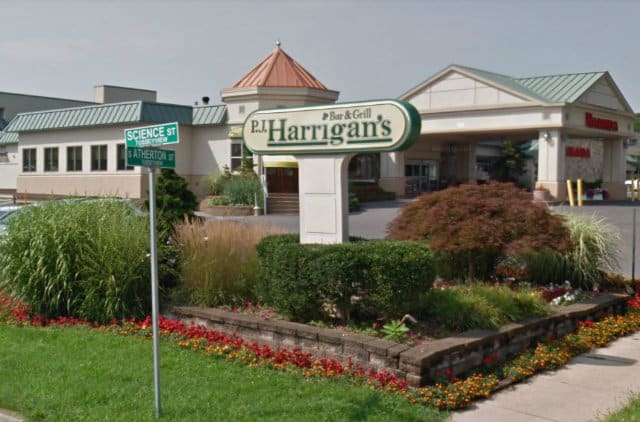
On Wednesday, April 3, State College Police announced the conclusion of an investigation into the shooting that left 4 people dead in State College in January.
According to a press release, Jordan Witmer had a blood alcohol content of almost three times the legal limit when he shot and killed three people before killing himself.
Officers responded to reports of a shooting at P.J. Harrigan’s Bar & Grill at 1450 S. Atherton St. and found three people who had been shot near the bar section of the restaurant. Investigators determined that the 21-year-old Witmer was sitting with Nicole Abrino at the bar, opposite from 62-year-old Dean Beachy his son, 19-year-old Steven Beachy. Witmer left the bar, walked downstairs to the bathroom, and then returned planning to leave the restaurant with Abrino.
Eyewitness accounts varied, but police believe Witmer first shot Abrino before fatally shooting the Beachys. Abrino survived the shooting. Witmer immediately fled the scene after the shooting.
Around 32 minutes after the shooting was reported, Witmer crashed his vehicle at the intersection of Waupelani Drive and Tussey Lane. Police began searching for Witmer and eventually found him about 28 minutes later at 748 Tussey Lane. Witmer shot and killed 82-year-old George McCormick and then himself in the living room of that residence. State Police have confirmed that Witmer did not know the McCormicks and chose their home randomly following the crash.
Witmer’s BAC was 0.223 and there were no drugs in his system. He was also a legal owner of the small-caliber semi-automatic gun used in the shootings.

Attorney contributor Max Morgan helps victims of preventable violent crimes explore their legal options and take action if the crime is found to have been preventable. Here are some of his thoughts on the options for legal recourse that may be available to bar shooting victims and their families:
The owners of bars, restaurants, nightclubs, and other types of businesses have an obligation to keep those businesses safe from preventable dangers. Strong security standards are part of this legal obligation. While not all violent crime may be preventable by better security, there are some cases in which a shooting may not have occurred if better security standards were in place.
In order for a bar owner to be held liable for a shooting, it must be established that the shooting was reasonably foreseeable. For example, this might apply in a bar shooting case if there was a history of violence at the bar or if the bar was in an area with high violent crime rates. In either of those scenarios, the bar owner would be required to have adequate security measures in place. If he or she failed to do so, the victims and their families could have a case for a lawsuit.
Determining liability for a bar shooting is a complicated process. If you or someone you love has recently become the victim of a bar shooting, you can learn more about your family’s legal options by discussing your case with an experienced crime victim attorney.
 info@legalherald.com
info@legalherald.com